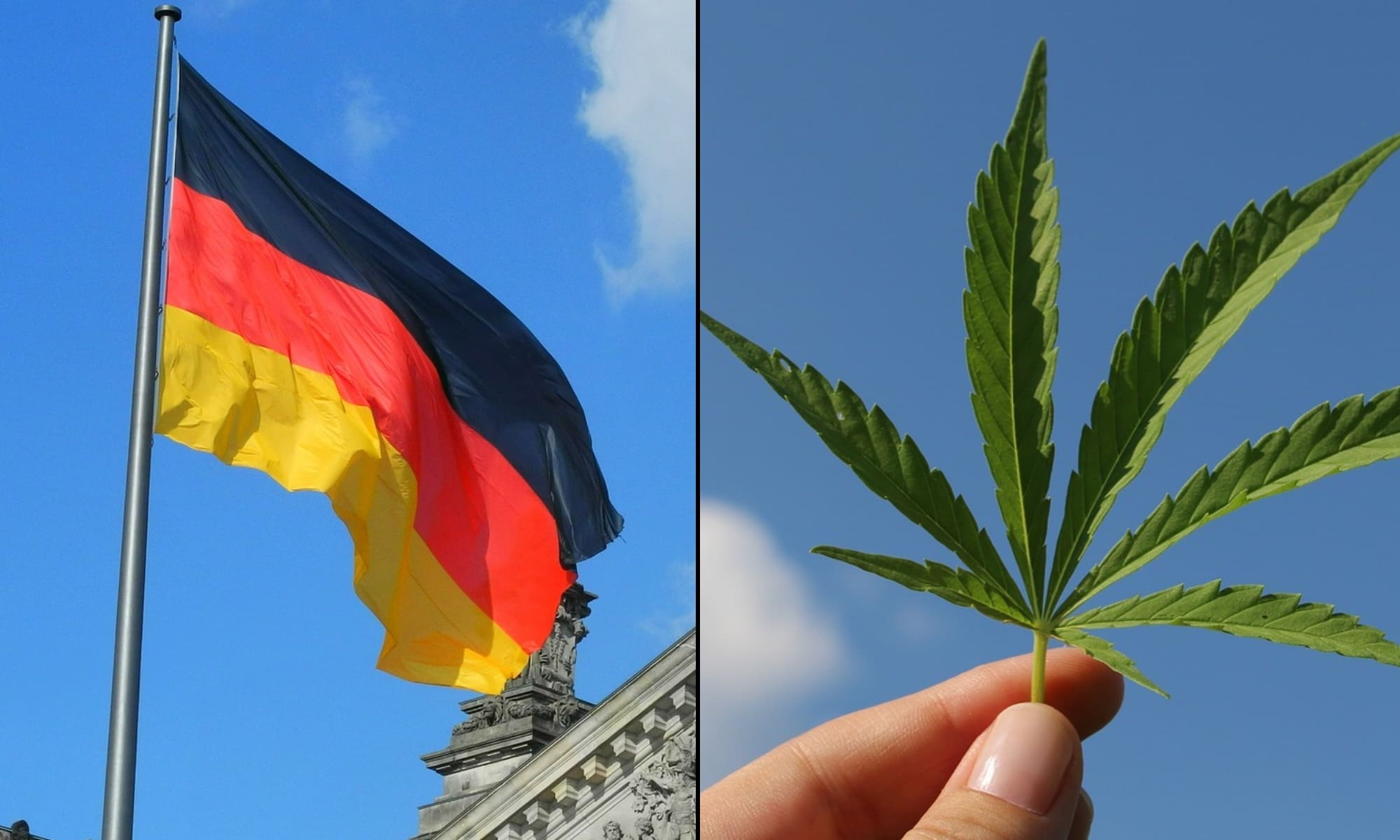Politics
German Lawmakers Postpone Marijuana Legalization Vote Scheduled For Next Week, Pushing Proposed Reform Into 2024

German lawmakers have postponed a final vote on legislation to legalize marijuana that was scheduled for next week, a move expected to delay the proposed nationwide reform from taking effect into at least early next year.
The bill, which was set for a final reading next Thursday in the Bundestag, Germany’s national parliament, now “will be decided in December,” member Carmen Wegge said in a social media post on Friday.
“I know this is a huge disappointment for many,” said Wegge, of the Social Democratic Party (SPD). “That’s why this decision wasn’t easy for anyone. However, well-designed improvements are in all of our interests.”
Das CannG wird im Dezember beschlossen. Das bedeutet, dass wir den Zeitplan nicht halten. Ich weiß, dass das für viele eine große Enttäuschung ist. Deswegen ist diese Entscheidung auch niemandem leicht gefallen. Gut ausgearbeitete Verbesserungen sind aber in unser aller Sinne. ✊
— Carmen Wegge (@CarmenWegge) November 10, 2023
A member of the allied Green Party, Kirsten Kappert-Gonther, explained the delay on social media by saying that “some wording still needs to be worked on.” Legalization will come, she emphasized, “just a little later.”
“I am confident that the law will become significantly better as a result of the discussions,” Kappert-Gonther said. “This is for a good cause, quality comes before time pressure.”
Das #CannaG kommt, nur etwas später. Ich bin zuversichtlich, dass das Gesetz durch die Beratungen deutlich besser wird.
Es muss noch an Formulierungen zu einigen Punkten gearbeitet werden. Das ist für einen guten Zweck, Qualität geht vor Zeitdruck.
Abschluss geplant für Dezember— Kirsten Kappert-Gonther (@KirstenKappert) November 10, 2023
Responding to a commenter who asked whether the Bundesrat, a separate legislative body that represents German states, would be “more or less ‘forced’ to make a statement in February” if the Bundestag moves forward with the bill in December, Wegge confirmed that is the case.
“Yes,” she said, “then it goes to the Bundesrat in February.”
Members of the Bundesrat tried to block the proposed reform in September but ultimately failed.
Despite what appears at this point to be just a two-month setback, some—including German news outlet LTO—have said the delay means the so-called “traffic light” coalition government between SPD, the Green Party and the Free Democratic Party (FDP) has broken its pledge to move the reform by January 1, 2024. “Many were looking forward to a legal joint on New Year’s Eve,” the outlet noted on Friday.
In light of the delay, LTO said it is “questionable” whether legalization can be realistically enacted by March.
The Bundestag had already delayed its first debate on the legislation—held last month—by a week, ostensibly due to the conflict in Israel and Palestine.
Lawmakers in the Bundestag held a hearing last week in the Health Committee, at which opponents criticized some elements of the proposal. The body also heard a competing policy proposal from The Union, a political alliance of the Christian Democratic Union and Christian Social Union (CDU/CSU), that would not legalize marijuana but instead “improve health protection and strengthen education, prevention and research,” Kappert-Gonther said at the time.
Another motion, from the Alternative for Germany (AfD) party, said lawmakers should instead focus on medical marijuana, which it says “enjoys a good reputation among the population.” The party argued the Bundestag should give up on adult-use legalization and instead draft a new law to fold medical marijuana into a national health care law, which would better address the “benefits and risks in an open-ended manner” and could lower costs for patients.
A number of groups have come out against the coalition government’s legalization proposal, including the Federal Medical Association, German Association of Judges and police and medical organizations. They were among nearly three dozen institutions and individuals who submitted statements ahead of the most recent hearing.
The measure, spearheaded by Health Minister Karl Lauterbach, would allow adults to legally possess cannabis and cultivate a maximum of three plants for personal use. It would also create social clubs that could distribute marijuana to members. Officials have said a forthcoming second phase of legalization will eventually launch a pilot program for regulated commercial sales.
As currently written, the legalization proposal would create social clubs that could distribute marijuana to members, with purchase limits for people over the age of 21 of 25 grams of cannabis per day—up to a total of 50 grams per month. People between 18 and 21, meanwhile, would be subject to a lower monthly limit of 30 grams.
Facilities could not be located within 200 meters of a school, and each jurisdiction could have only one club for every 6,000 residents. Clubs would be limited to 500 members and would need a a social club permit, which would be valid for up to seven years with the possibility of receiving an extension. Membership to the clubs would have to last at least two months under the draft bill.
A summary of the legislation also outlines estimates of the costs of implementing and regulating the program, as well as savings from reduced enforcement and new revenue that’s expected to be created through wage taxes from people working at cannabis clubs.
Officials are also planning to introduce a complementary second measure that would establish pilot programs for commercial sales in cities throughout the country. That legislation is expected to be unveiled after its submitted to the European Commission for review.
The measure as previously described by officials would allow cannabis sales at retailers in select jurisdictions as part of the pilot program that would allow the country to assess further reform over five years. Specifically, officials would study the impact of the shops on consumption trends and the illicit market. Localities would need to opt in to allow the stores to operate.
Lauterbach first shared details about the revised legalization plan in April. The next month, he distributed the legislative text to cabinet officials. The health minister responded to early criticism of the bill from medical and law enforcement groups by emphasizing that the reform would be coupled with a “major campaign” to educate the public about the risks of using cannabis.
Formal legislation detailing the government’s previously announced framework was initially set to be released by the end of the first quarter of 2023, but that timeline was extended “due to scheduling reasons” as officials worked to revise it in order to avoid a potential conflict with international laws.
Germany’s Federal Cabinet approved the initial framework for a legalization measure late last year, but the government wanted to get sign-off from the EU to ensure that enacting the reform wouldn’t put them in violation of their international obligations.
The framework was the product of months of review and negotiations within the German administration and the traffic light coalition government. Officials took a first step toward legalization last summer, kicking off a series of hearings meant to help inform legislation to end prohibition in the country.
A group of German lawmakers, as well as Narcotics Drugs Commissioner Burkhard Blienert, visited the U.S. and toured California cannabis businesses last year to inform their country’s approach to legalization.
The visit came about two months after top officials from Germany, Luxembourg, Malta and the Netherlands held a first-of-its-kind meeting to discuss plans and challenges associated with recreational marijuana legalization.
Leaders of the coalition government said in 2021 that they had reached an agreement to end cannabis prohibition and enact regulations for a legal industry, and they first previewed certain details of that plan last year.
A novel international survey that was released last year found majority support for legalization in several key European countries, including Germany.
















